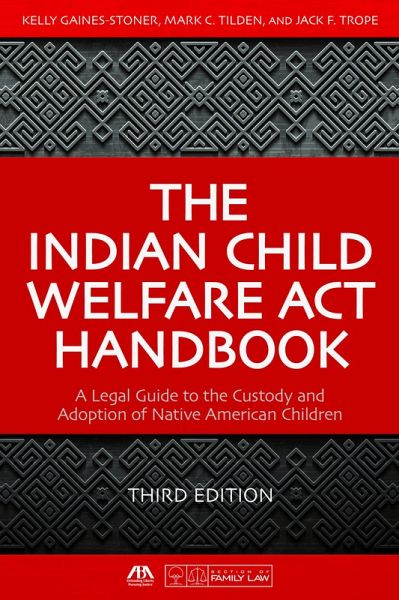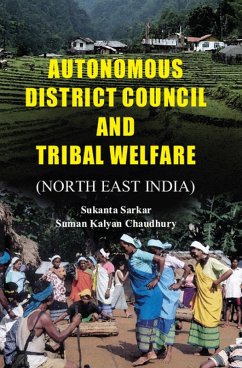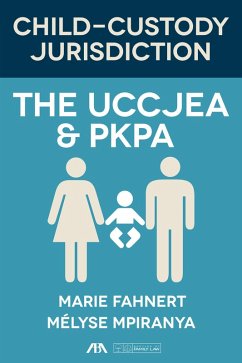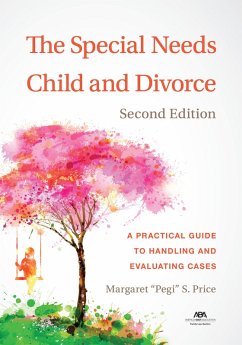
Indian Child Welfare Act Handbook (eBook, ePUB)
A Legal Guide to the Custody and Adoption of Native American Children, Third Edition

PAYBACK Punkte
42 °P sammeln!
Now fully revised and updated, The Indian Child Welfare Act Handbook is a one-of-a-kind guide to the Indian Child Welfare Act of 1978. The ICWA was enacted to ameliorate the problem of the massive removal of Native American children from their homes by both state welfare agencies and private agencies and to ensure that those children, once removed, would be placed in homes that reflect their cultures and traditions. This guide examines case law from courts around the country -- it is an issue not confined to reservations and their border towns. There have been many legal changes since publicat...
Now fully revised and updated, The Indian Child Welfare Act Handbook is a one-of-a-kind guide to the Indian Child Welfare Act of 1978. The ICWA was enacted to ameliorate the problem of the massive removal of Native American children from their homes by both state welfare agencies and private agencies and to ensure that those children, once removed, would be placed in homes that reflect their cultures and traditions. This guide examines case law from courts around the country -- it is an issue not confined to reservations and their border towns. There have been many legal changes since publication of the Second Edition, including what is arguably the most important development since ICWA was enacted 40 years ago. In 2016, the Department of the Interior issued ICWA regulations, the first time that regulations were issued pursuant to the Administrative Procedures Act. This updated edition incorporates the provisions of those regulations and their impact on the various procedural and substantive requirements of the ICWA. Case law in both the state and federal courts continues to evolve, and this edition examines hundreds of new decisions, including only the second US Supreme Court case interpreting the ICWA, as well as new state versions of the ICWA that expand upon some of the protections of the federal law. The Indian Child Welfare Act Handbook continues to provide a comprehensive source to assist lawyers, social workers, counselors, and others whose professions and interests involve them with Native American children. To provide this much-needed practical guidance, information covered in this Third Edition includes:
- The history and foundation of ICWA
- How the act is applied and what provisions are covered
- Jurisdictional provisions Procedural requirements
- Placement provisions
- Collateral challenges to ICWA determinations
- Funding of ICWA programs
Dieser Download kann aus rechtlichen Gründen nur mit Rechnungsadresse in A, B, BG, CY, CZ, D, DK, EW, E, FIN, F, GR, HR, H, IRL, I, LT, L, LR, M, NL, PL, P, R, S, SLO, SK ausgeliefert werden.













